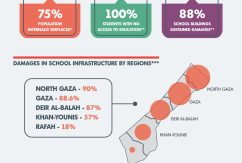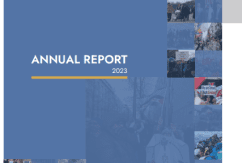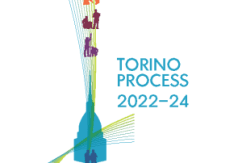Agricultural workers in Tunisia find their voices
A grassroots project supports the empowerment of women agricultural workers in vulnerable areas of Tunisia, by creating spaces for public dialogue and artistic expression of their dreams and struggles.
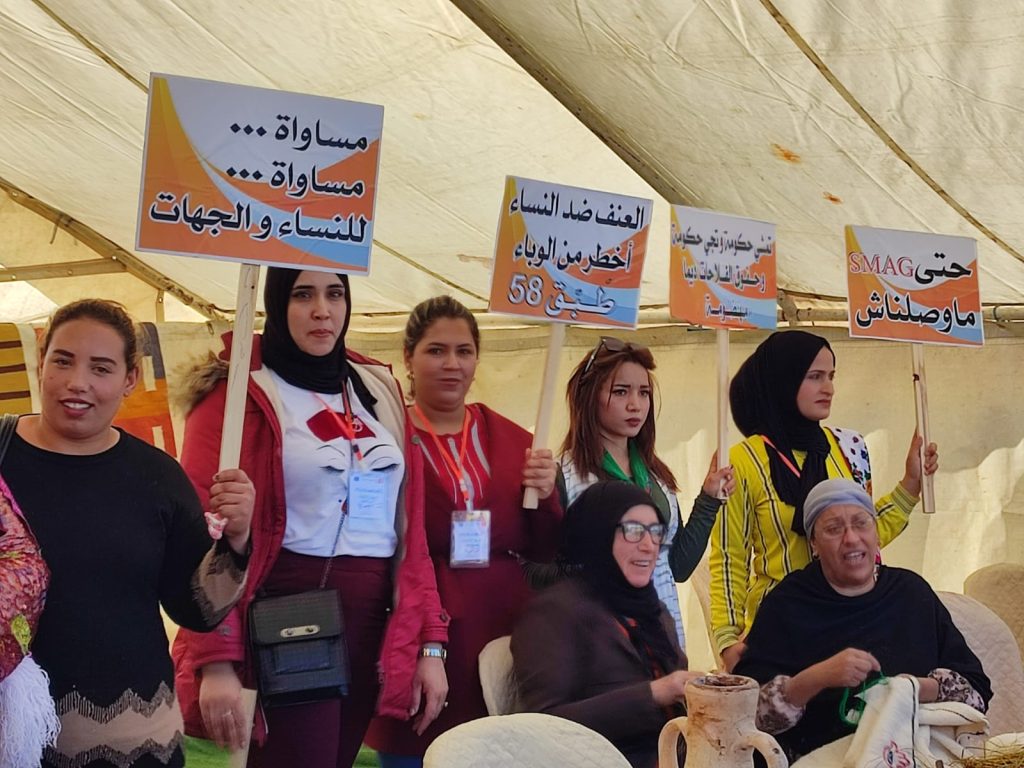
Having struggled with socio-economic development and known some instability over the past decades, the marginalised Governorate of Kasserine, in west-central Tunisia, has been resounding with laughter and sweet melodies lately thanks to the collaborative artistic work “Digourdiya”, a creative theatrical performance led by the Cultural Centre of Arts and Crafts of Jbel Semmama.
Established in 2018 as a “barracks of cultural resistance”, the Centre is a “place of life, culture and economic development that seeks to provide alternatives, economic, and cultural hope to the people of the governorate”, explains Adnen Helali, the artist who initiated the project.
“This Centre -which is the first ever cultural space in mountainous region in Tunisia- also aims to fill the void that led to [jihadist] atrocities in the past with culture, art, and life.”
His latest idea? Putting on a show made by and featuring women workers in agriculture, as a celebration of their daily work and connection to the land. “We learned about a grant of 10,000 euros provided by the local NGO COSPE for projects involving women working in agriculture,” Adnen recalls, noting that “we were already working with these women through various empowerment initiatives so this was a great opportunity to expand even more.”
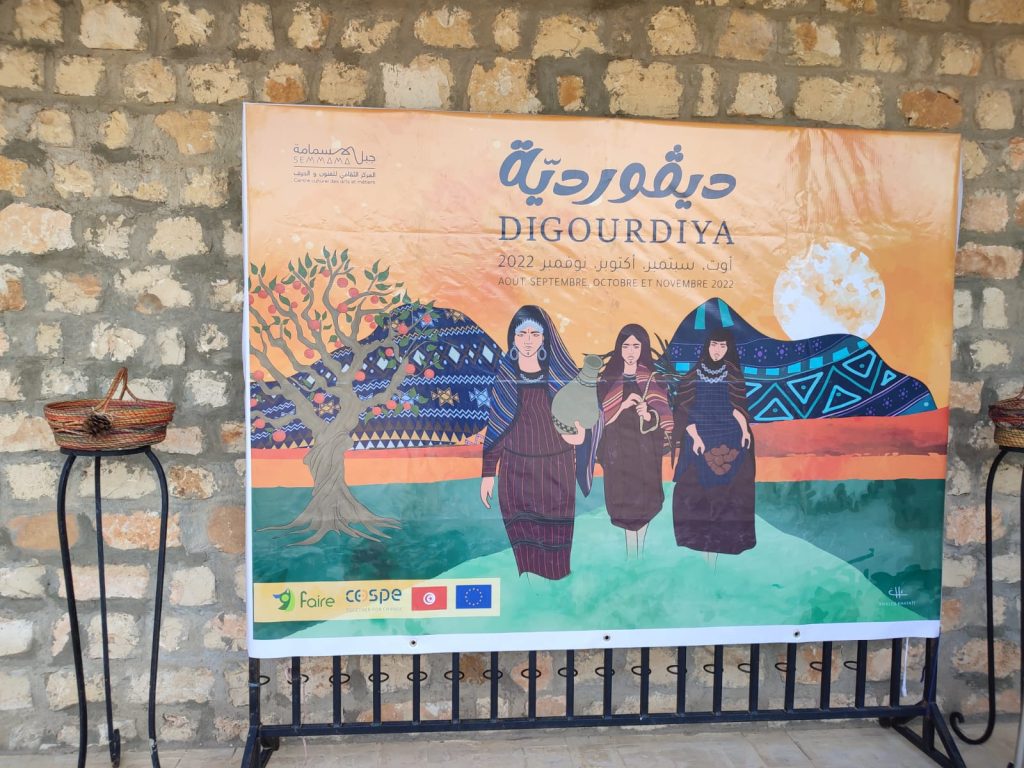

EU-funded ‘’FAIRE’’ project: meeting the “true” reality of agricultural labour
The grant awarded by COSPE is part of the EU-funded project “Femmes Travailleuses Dans L’Agriculture: Inclusion, Reseautage, Emancipation- FAIRE”, which seeks to consolidate the initiatives of institutional, associative and trade union actors for the application of the economic and social rights of women working in agriculture in the regions of Jendouba, Kasserine, Mahdia, Sidi Bouzid and Sfax.
“This project was thought through a very different approach than usual: we wanted women agricultural workers to be directly and proactively involved in the steps to be taken so that their rights would be better respected” explains Amina Ben Fadhl, national coordinator of “FAIRE” and project coordinator at COSPE, who said that they conducted over 100 individual interviews of over two hours and 500 focus groups to better understand the reality of these women.
“We needed to understand their reality from sunrise to sunset, and allow them to release their voice and express their own priorities,” she states, insisting that “we need to stop putting women farm workers under tutelage and decide for them. They clearly have the capacity to be involved in reflection and decision-making”.
As part of a research-action, these interviews allowed for the mapping of the socio-economic reality of women and recommended solutions to their challenges. This research-action was carried out in the framework of the first component of the ‘FAIRE’ project, which also included the capacity building phase for the benefit of women workers, trade unions and civil society structures. The third component culminated with the financing of 19 concrete projects across five agricultural regions, including that of Adnen Helali.
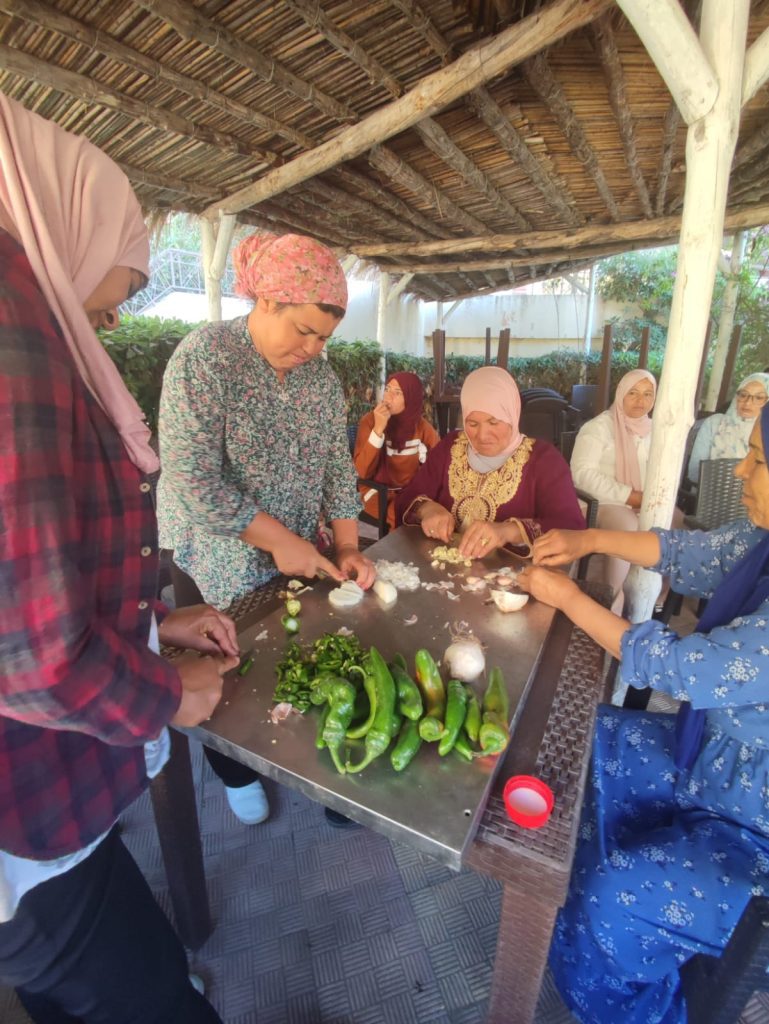

Agriculture and culture: two worlds intertwined
“Agriculture and culture are the same thing: they even share the root of a word!” exclaims Adnen Helali with enthusiasm, reflecting on the reasons that pushed him to submit the idea of a live multi-disciplinary show as a project proposal.
“These agricultural women workers are artists themselves as they celebrate the love of their land, the rejection of exodus and their affection for a long-abandoned mountain,” Adnen, who is a poet himself, says.
Set up as an interactive performance, the show brings the audience into the world of these agricultural workers, by allowing them to taste, smell and feel what it means to be a woman working the land. In addition to songs celebrating traditional agricultural products like the rosemary or the “figues de barbarie” (also known as prickly pears), the female performers distillate essential oils generated from their crops during the show, allowing the spectator to plunge into a world of wonders.
All senses are awoken, as women take on dancing, singing and playing alongside local break-dancers, musicians and professional dancers. “It is a spectacular and imaginative celebration of everything our Centre is about: an art that is not utopian and detached from reality, but rather a concrete manifestation of the new ecosystem we are trying to build in the region,” Adnen explains.
“Amidst the immense hardships they experience, these women also bring singing, smiling, and joking around their work in the fields,” reacts Adnen. “They are expressing all sorts of talents. And this is what we want to celebrate here, in addition to their creations from the land.”
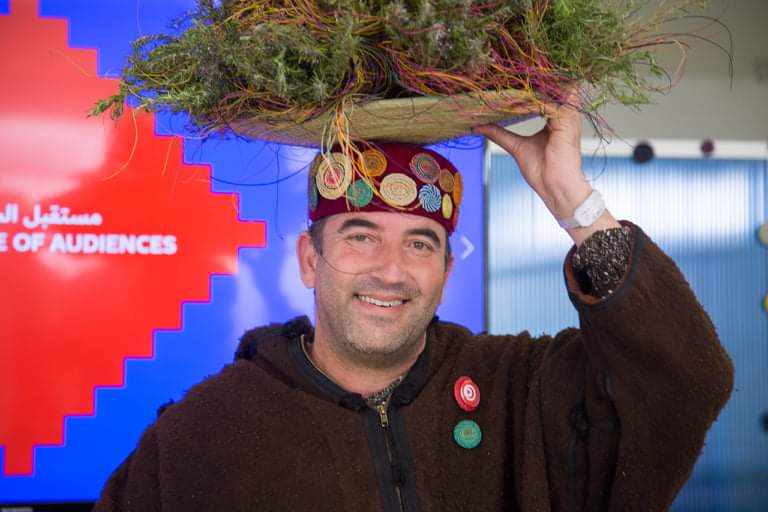

A thirst for culture: ways to fight extremism
Climbing on stage, Saliha bursts in laughter, reacting to the joke of one of her fellow actresses, Yassayah. The exchanges are genuine, emotional, but always cheerful.
“For these women, the play is not just a way to earn an income. It is a platform where they get to discover new feelings. When they perform, they plunge into a whole new atmosphere, where they feel fulfilled and seen,” explains Adnen.
Three rehearsals have already taken place, and the director expects a thousand spectators to show up to the premiere. “When there is a show in a small village, everyone comes. You can have up to 1,000 spectators when in a big city you can barely get 300 people. There is a real need and desire for culture!”
Whilst the play is scheduled to be inaugurated at the end of April 2023 in Mahdia, the women are already pleading for a follow-up. “We are in the process of rewriting the first script, in order to make it more professional, and to ensure a perfect control of the scene, the materials and the time. We also want to replicate the concept in other regions such as in Kef, Gafsa…” Adnen concludes, highlighting again this “thirst for culture and entertainment that prevails in our remote areas”.


The Programme
Women Workers in Agriculture: Inclusion, Networking, Emancipation (or ‘Femmes travailleuses dans l’Agriculture: Inclusion, Réseautage, Emancipation – FAIRE’) is a €1.1 million programme funded by the European Union through the Neighbourhood Instrument and enlargement negotiations.
The general objective is to support civil society in the promotion of the fundamental rights of women in rural areas in Tunisia. More specifically, it seeks to consolidate the initiatives of institutional, associative and trade union actors for the application of the economic and social rights of women working in agriculture in the regions of Jendouba, Kasserine, Mahdia, Sidi Bouzid, Sfax.








